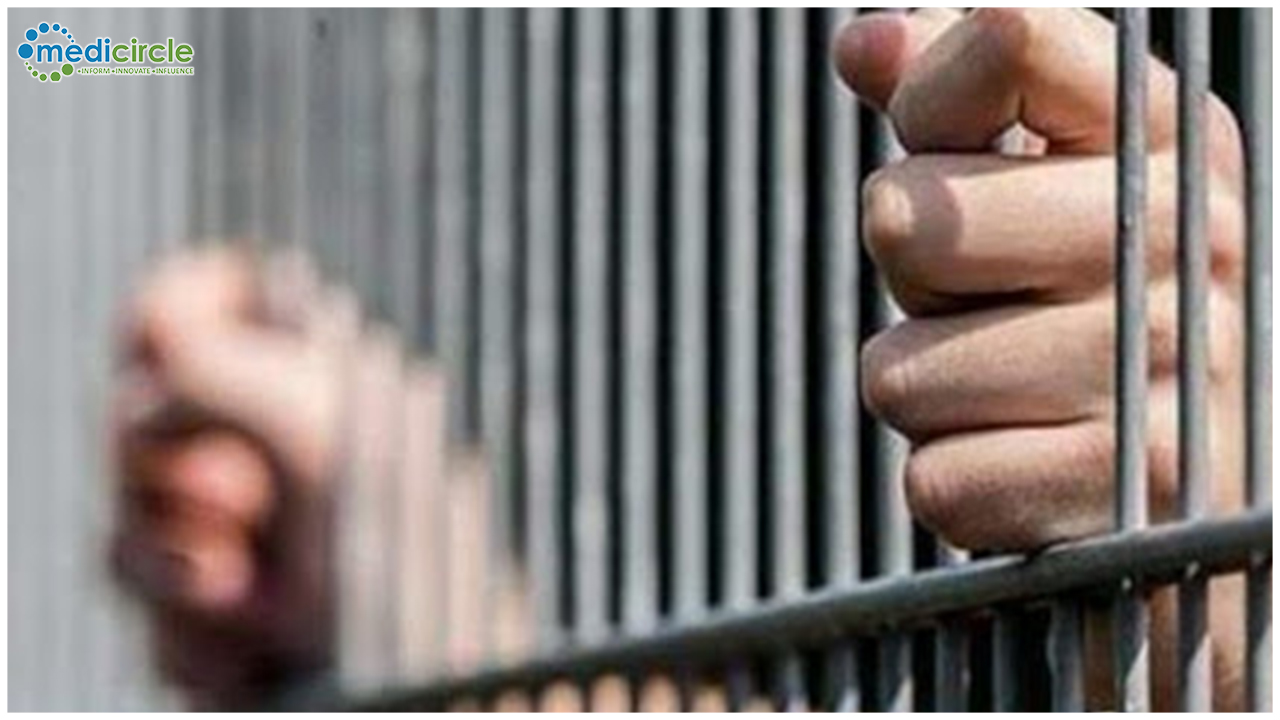According to HRW , Emirati prison authorities should consider the conditional and appropriate release of prisoners living with HIV who have been denied regular access to lifesaving medication as the number of COVID-19 cases in the UAE increases, Human Rights Watch said today. These prisoners may have compromised immune systems that leave them vulnerable to opportunistic infections and further disease progression. The authorities should unconditionally release people detained unlawfully, including those detained for peaceful dissent.
The authorities should also consider the appropriate temporary release of other at-risk prisoners if prison officials are unable to protect prisoners from coronavirus transmission. COVID-19, like other infectious diseases, poses a particularly serious risk to people who live in close proximity to each other, such as in prisons, jails, and immigration detention centers. In the UAE, these are institutions that have often been found to hold detainees in dismal and unhygienic conditions, and where overcrowding, inadequate health care facilities, and denial of medical care are widespread.
“Prisoners living with HIV who have been denied medication are already suffering from weakened immune systems and are at high risk if they are infected with the coronavirus,” said Michael Page, deputy Middle East director at Human Rights Watch. “The UAE authorities should immediately consider the appropriate release of the most vulnerable prisoners, as well as unjustly detained prisoners who should not have been jailed in the first place.”
Recent Human Rights Watch research has revealed that UAE prison authorities are denying prisoners living with HIV regular and uninterrupted access to lifesaving antiretroviral treatment. Interruptions in treatment can increase the risk of developing viral resistance and lead to a much higher risk of fatal opportunistic infections. Older people and those with chronic illness are also at high risk of illness and death if infected. As of March 17, 2020, 113 people in the UAE had tested positive for the virus, according to the UAE’s Health and Prevention Ministry.
Detainees living with HIV in the UAE are segregated from the rest of the prison population in a discriminatory manner that leaves them isolated and denied access to prison amenities. But sources close to detainees in one prison told Human Rights Watch that prison staff do intermittently enter their quarters to carry out security checks and to provide food and other supplies, which has left some prisoners with weakened immune systems fearful of contracting the virus. Sources have also said that the segregated prisoners do not have unfettered access to the prison clinic and must wait for medical staff to visit their quarters to be able to report any deterioration in medical conditions.
International guidelines on human rights standards in prisons state that prisoners have a right to medical services, without discrimination, at least equivalent to services available to people in the community, including for HIV and other infectious diseases. Under international law, prison authorities are also obliged to ensure necessary hygiene to prevent disease transmission and to provide essential medical care for all detainees. In cases in which prisoners are suspected of having contagious diseases, the authorities are obligated to provide for their clinical isolation and appropriate treatment.
The denial of adequate medical care in UAE prisons and detention facilities extends beyond prisoners living with HIV and other communicable diseases and is most common in state security facilities, where torture is systemic. Human Rights Watch has also received consistent reports of inhuman, degraded, overcrowded, and unhygienic conditions in prisons across the UAE, which leave prisoners and prison staff at heightened risk of contracting the virus. On March 17, United Nations human rights experts called on UAE authorities to urgently reform the “degrading conditions of detention” in UAE prisons.
Over the past year, there have been increased concerns for the deteriorating health of two unjustly detained rights activists, Ahmed Mansoor and Nasser bin Ghaith, who are being held in dismal prison conditions and denied access to health care in Al Sadr and Al Razeen prisons, respectively. Hundreds of other activists, academics, and lawyers are serving lengthy sentences in UAE prisons under similar conditions and on vague and broad charges that appear to violate their rights to free expression and association.
UAE authorities are obligated by international human rights law to ensure that prisoners and prison staff are protected from infection and have access to treatment if ill. The UAE authorities should also end the excessive use of pretrial detention, which should be the exception, not the rule, and release or promptly take before a judge those detained for months without trial. They should consider release of prisoners who have served most of their sentences and release those who suffer serious or terminal illnesses. They should also promptly allow independent international monitors to enter the country and regularly monitor prison and detention facilities, Human Rights Watch said.
“Repeated calls for the UAE authorities to open prisons and detention facilities up to inspection by international and independent monitors have gone unheeded,” Page said. “Amid the urgency of the global coronavirus pandemic, the government should act without delay to improve detention conditions and access to medical care.”

 Free Those Unjustly Detained; Consider Conditional Release of Others
Free Those Unjustly Detained; Consider Conditional Release of Others










.jpeg)

.jpeg)
.jpeg)

.jpeg)


.jpeg)



.jpeg)
.jpeg)
.jpeg)


.jpg)


.jpeg)
.jpeg)